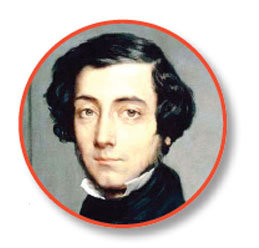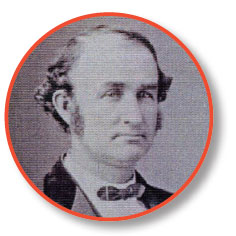Forest of Philanthropy
Linking traditions of the community’s lumber-driven birth with today’s businesses. We recognize corporate gifts and support from the following companies.
UPMC
PPL Electric Utilities
Wegmans Food Markets
Weis Markets
Lycoming Engines
Arxada, LLC
PMF Industries
UGI
West Pharmaceutical
Tocqueville Society

The United Way Tocqueville Society recognizes local philanthropic leaders and volunteer champions in the United States, France and Romania who have devoted time, talent, and funds to create long-lasting changes by tackling our communities’ most serious issues.
Renowned French political philosopher Alexis de Tocqueville admired three elements in North American society: liberty, equality and the spirit of neighbor helping neighbor. These same elements are embraced in the French national motto: “Liberté, Egalité, Fraternité.” Tocqueville believed that by achieving these elements of democracy, all people would choose to pursue freedom, knowledge and prosperity, or indépendance, connaissance, and prospérité.
Today over 25,000 Tocqueville members strong, since 1984 over $9 billion has been contributed by Tocqueville members. Membership in the Society is granted to individuals
who contribute at least $10,000 annually to United Way. National Society Membership is granted to individuals who contribute $100,000 or more per year to the United Way. Partnership with the United Way’s Million Dollar Roundtable is limited to individuals who have contributed $1,000,000 or more to the United Way mission and impact work. With heartfelt appreciation for our local Tocqueville members.
Michael & Lori Kraft
Peter Herdic Society

Born in Fort Plains, New York, in 1824, the promise of lumber riches brought Peter Herdic to Pennsylvania in 1853. In 1857, he and two other local businessmen purchased the Susquehanna Boom Company. Using his political influence, Herdic then convinced the legislature to raise boom tolls from $.50 to $1.25 per thousand feet of logs. In its peak year in 1873, the boom processed nearly 320 million feet of logs, earning considerable
profits for Herdic and his partners.
In 1869, Herdic was elected as the third mayor of Williamsport. He owned the gas works and sold land to the railroads to bring them into the city (routing them through other Herdic property to increase its value). He built office buildings, a waterworks, an urban railway, and a bridge over the Susquehanna River. Herdic also owned the local newspaper. But in addition to his business enterprises, he donated homes to the working class, erected churches on donated land, and constructed public buildings and signed them over to the city. Some sources claim his philanthropic activities severely depleted his finances and that he hovered between wealth and ruin on a yearly basis.
James W. & Cynthia Bower
Stephen C., John W., and John C. Lundy Foundation
Dr. William & Laura Martin
Dr. James & Margaret Redka
Mr. Chris W. Stamatedes
Drs. Kent & Sharon Trachte
David & Marjorie Deblander
Dr. Charles & Erin Edmonds
Ron & Judy Frick
Dr. Charles L. Getchell
Mr. Robert C. Izer
Dr. John & Margaret Piper
Mark & Connie Sitler
Donald & Joan S. Shade
Mrs. Mary H. Shaw
Joseph & Deb Arthur
Ms. Alfreda C. Baer
Tim & Jill Bair
Lawrence J. Bauman
Dale & Shirley Bittenbender
Edward Blair
John & Karen Blaschak
James & Linda Boose
Amy Brent
Kurt & Vicky Brungard
Patrick Buchheit
Bruce & Betty Buckle
John & Lydia Comerford
David & Sally Craig
Robert & Linda Crockett
Frances Doherty
Ted & Cindy Dougherty
David Dunmire
George & Shirley Durrwachter
Audriana L. Empet
Victor & Mary Engel
Gerard & Vicki Fischer
Terri A. Flook
Mindy B. Foresman
Dr. Gregory & Marilyn Frailey
Donald C. Fulmer
James & Lorraine Gates
Dennis & Patricia Gehris
William H. Gehron, III
William Geyer & Dorothy Gerring
Drs. Daniel Glunk & Margrit Shoemaker
Mrs. Betty Hall
Tim & Susie Heilman
William C. Henderson
Sandra A. Irion
Steven & Mary Ann Johnson
Dr. Steven R. Johnson & Ellen Davis
Dr. Oscar & Shirley Knade
George & Terry Krezmer
Ms. Nancy J. Lady
Albert L. Laird
Randall & Roxanne Laird
Renee D. Laychur
Dawn M. Linn
Bud & Denise Lorson
Scott & Jean Lowery
Charles & Hallie Luppert
James & Donna Maule
Todd & Eleanor McCoy
John & Pat-Therese Merrifield
Craig & Georgette Miller
Tara Miller
Richard & Sara Mirabito
C. Edward and Karen Mitchell
Corey Mowrey
Joseph & Marilyn Neyhart
Walter & Patricia Nicholson
Anthony Pace
Edward & Erin Pawlak
Harry Pedersen
Scott Pequignot
Brian Pick
Joyce Rhodes
Jack & Christine Rupert
Ken & Merlyn Sawyer
Jack & Cindy Schrader
James & Linda Scott
Robert & Alice Seiferth
Julie Smith
William & Nancy Somers
Philip & Elizabeth Sprunger
Dr. Craig & Dawn Stabler
Jennifer A. Stehman
Kevin & Sharon Steinbacher
David & Louisa Stone
Albert Styrcula
George A. Umstead
Robert & Irenay Weaver
Joseph J. Weber
Nathan L. Welshans
Tracie Witter
Michael & Mary Wolf
Ralph & Lou Ann Zeigler
